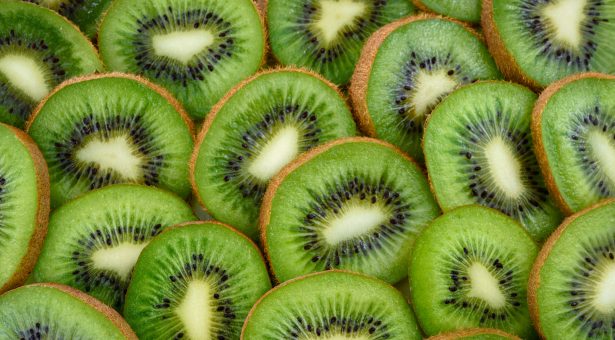Using biocontrol strains of Pseudomonas to improve the sustainability of Kiwifruit production

Researchers at the John Innes Centre are working with Zespri, the world’s largest marketer of kiwifruit, to develop sustainable solutions against a devastating bacterial pathogen of kiwifruit.
Pseudomonas syringae pv. actinidiae (PsaV) has infected the majority of New Zealand’s kiwifruit and current chemical control methods are likely to be ineffective in coming years.
By developing new biocontrol approaches using naturally occurring kiwi-associated Pseudomonas bacteria we hope to contribute to a more sustainable future for Kiwifruit production.
Since 2008, an aggressive strain of bacterial pathogen, Pseudomonas syringae pv. actinidiae (PsaV), has been threatening global Kiwifruit orchards. Kiwifruit is New Zealand’s biggest horticultural export, valued at $1.8 in 2018.
Control methods depend on ecologically damaging chemicals such as copper and antibiotics. In addition, Psa populations are developing resistance to chemical control methods, which in the near future, will render them ineffective.
This leaves the industry in a vulnerable position. Alternative methods of control, that improve the sustainability of Kiwifruit production, are desperately needed.
“If we don’t come up with ways to treat kiwifuit vines infected, NZ will lose a massive chunk of its agricultural exports” warns Group Leader Dr Jacob Malone.
Dr Malone’s lab is focussed on combatting agriculturally-relevant plant diseases that are either caused or suppressed by Pseudomonas species. Pseudomonas is a large family that contain both plant pathogenic and beneficial bacteria.
Pseudomonas syringae, is a major plant pathogen affecting many important crops worldwide. Pseudomonas syringae pv. actinidiae (PsaV), the causal agent of bacterial canker in kiwifruit, has devastated global kiwifruit production since 2008.
In collaboration with Zespri Kiwifruit, the world’s largest marketer of kiwifruit, researchers at the John Innes are exploring naturally occurring populations of kiwi-associated Pseudomonas bacteria as alternative control agents.
The collaboration has isolated kiwi-associated Pseudomonas bacteria. They aim to identify strains that can effectively fight back against PsaV infection. They will exploit this knowledge to discover and characterise novel anti-PsaV treatments.
“I hope we identify something that they are willing to test in the field, something that does a reasonable job of slowing the pathogen” adds Dr Malone.
This collaboration began with a PIPS PhD student from Dr Malone’s lab, who worked with Kiwifruit Vine Health Inc (KVH), a leading biosecurity organisation dedicated to supporting the New Zealand kiwifruit industry, to report on existing research and knowledge around PsaV.
Zespri have been very supportive of this work and committed funding for a PhD student to work on this study. If this study goes well, it is hoped Zespri and the John Innes Centre will form a longer-term relationship, to realise a sustainable solution for global Kiwifruit production.
